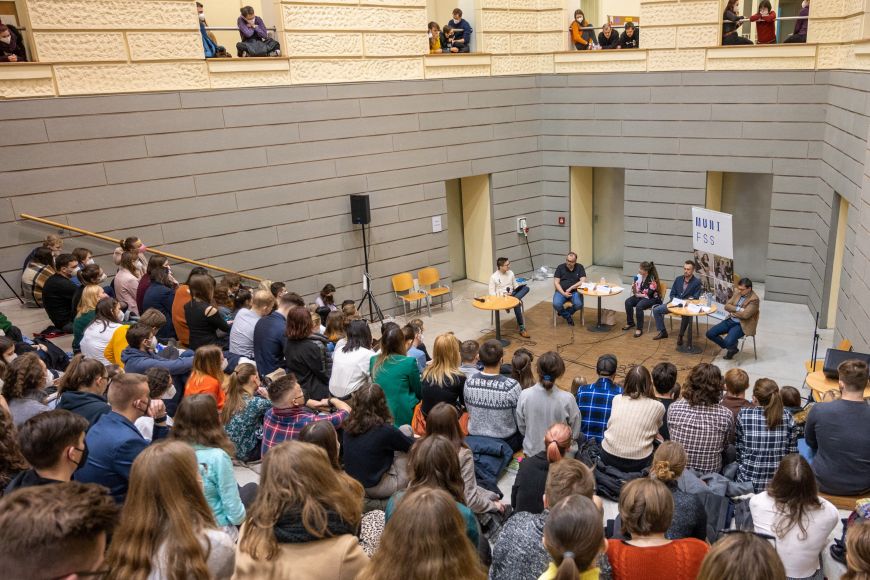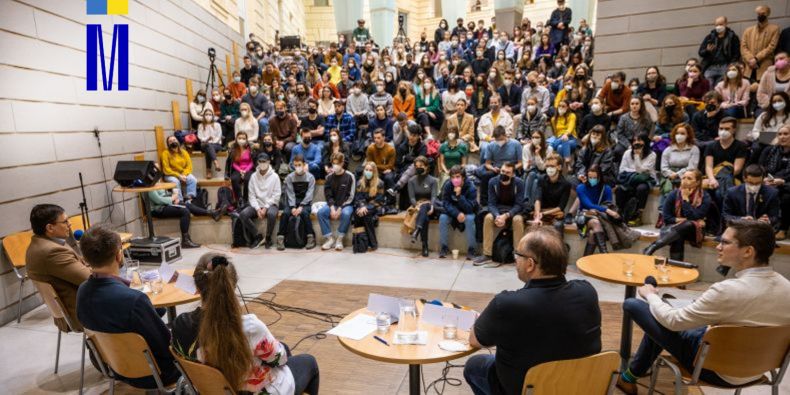The ongoing military conflict raises many questions, which were discussed by Jan Holzer and Miroslav Mareš from the Department of Political Science and Petra Kuchyňková and Vladan Hodulák from the Department of International Relations.
Stanislav Balík, Dean of the Faculty of Social Studies, welcomed the students and other visitors in a fully packed atrium. “I am very glad that we are holding a debate on such an urgent and serious topic at our faculty today. A couple of years ago, my colleagues and I went to Kharkiv to give some lectures. At that time I said to people there that if someone had blindfolded me before the trip, dropped me off on the street somewhere and I had not seen any signs in Cyrillic, I would not have guessed that I was not present in a Western city. So similar was the society and so similar were the surroundings. Many of the people we were delivering our lecture to there – people who wanted to learn something about what freedom and democracy mean – are now fighting for these very values with rifles in their hands while their homes and basic security are being taken from them,” said Mr Balík.

Experts on the panel expressed their views on various debate topics, which included the issue of the legitimacy of the attack on Ukraine, Russian propaganda and the relations between Russia and Ukraine in the post-Soviet era. During the meeting, the fearlessness and courage of the Ukrainians were also mentioned, as was the topic of economic sanctions against Russia. “Unfortunately, in my opinion, the Russians are able to withstand a lot. They have the basic necessities they need to continue the war – they have enough food, energy, oil and equipment,” said Vladan Hodulák.
During the discussion, a member of the audience also asked if it looked like Putin was “losing”. “No one knows exactly what is happening on the ground in Ukraine at the moment, but I am convinced that things are not going according to Putin’s plan. He was planning a quick and effective special operation – at least from his perspective – where his troops would surround the cities, storm them and capture members of the Ukrainian government,” replied Miroslav Mareš. “That didn’t work out, which makes the Russian leadership nervous and Putin unhappy, but it certainly doesn’t mean he is losing the war. His forces are still advancing – each morning we learn about new bombings and little by little the front line keeps being pushed deeper into Ukraine. It remains to be seen whether the Ukrainians are willing and able to fight a long war even after the major cities fall, and how they will do that,” Mareš added.

MUNI HELPS UKRAINE. You can help Ukrainian students and academics by donating money to support educational and humanitarian efforts. You can make a donation through the MU Shopping Center. You can find out how much money has been collected so far on the MUNI HELPS website.
